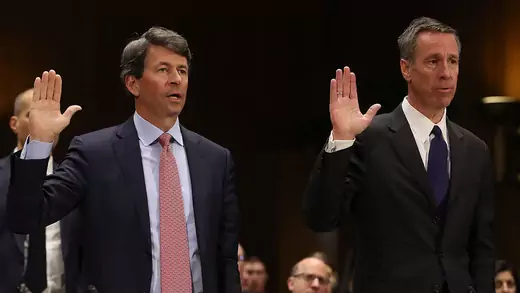- Iran
- Israel-Hamas
-
Topics
FeaturedIntroduction Over the last several decades, governments have collectively pledged to slow global warming. But despite intensified diplomacy, the world is already facing the consequences of climate…
-
Regions
FeaturedIntroduction Throughout its decades of independence, Myanmar has struggled with military rule, civil war, poor governance, and widespread poverty. A military coup in February 2021 dashed hopes for…
Backgrounder by Lindsay Maizland January 31, 2022
-
Explainers
FeaturedThis interactive examines how nationwide bans on menthol cigarettes and flavored cigars, as proposed by the Biden administration on April 28, 2022, could help shrink the racial gap on U.S. lung cancer death rates.
Interactive by Olivia Angelino, Thomas J. Bollyky, Elle Ruggiero and Isabella Turilli February 1, 2023 Global Health Program
-
Research & Analysis
FeaturedRush Doshi is senior fellow for China and Indo-Pacific studies and director of the initiative on China strategy at the Council on Foreign Relations (CFR). His expertise includes China’s foreign polic…
April 15, 2024
-
Communities
Featured
Webinar with Carolyn Kissane and Irina A. Faskianos April 12, 2023 Academic and Higher Education Webinars
-
Events
FeaturedJohn Kerry discusses his work as U.S. special presidential envoy for climate, the challenges the United States faces, and the Biden administration’s priorities as it continues to address climate change.
Virtual Event with John F. Kerry and Michael Froman March 1, 2024
- Related Sites
- More
November 4, 2021
CompetitivenessThe United States should regard distrust, not cooperation, as a baseline condition for starting negotiations around shared global threats and challenges with other major powers, such as China and Russia.

November 24, 2020
DemocracyTo prevent further democratic regression in South and Southeast Asia during the coronavirus pandemic, countries should continue holding free elections and counter illiberal leaders’ use of disinformation.

October 16, 2019
CybersecurityCompanies should disclose instances of cyber-enabled intellectual property theft. Disclosure requirements would give companies greater incentives to protect their intellectual property and allow investors to make better-informed decisions.

April 29, 2021
CompetitivenessTo manage the increasingly stark geopolitical power shifts of the past decade-plus, the United States should pursue arms control strategies that regulate rivalry and introduce a broader array of reci…

November 29, 2018
ArcticAs national governments, international institutions, and nonstate actors explore approaches to Arctic governance, a cohesive approach is necessary to address the environmental, economic, sociocultural, and geopolitical challenges the region faces.

 Online Store
Online Store